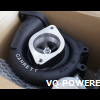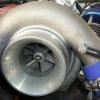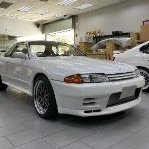Airconditioning Laws [Update]
Announcements
-
Similar Content
-
Latest Posts
-
To do the ones around the fuel tank, as in the external ones, you'll likely want a hoist, and to drop the tank. That's the way I'd do them again anyway.
-
Is the 650rpm idle on the rb25det neo for stock cars only? I've never had my car before and after tuning it to idle at 650rpm when cold. Always idle's cold around 1100rpm, and then drops to about 900-950rpm. I've heard the r33 gtst's idle there.
-
Series 1 RB25DET 5 speed gearbox, push type, 1st and 2nd gear syncros worn, may need bearings. Comes with quick shift, Tomei gear knob, release fork, bearing carrier, master and slave cylinder. $850. Cusco Super Single clutch,assembly, 225mm, used, comes with a Direct Clutch solid centre 5 puck ceramic clutch plate. $290. RB26 cams used, excellent condition. $280. HDI GT2 intercooler, excellent condition, has 3 inch piping welded to inlet and outlet. $250. All items located in South Eastern Melbourne. Please PM me if interested.
-
Hi all, I’m currently running a str pipe hi low hks exhaust and downpipe. Was wondering if I change out muffler to a titanium one will it change the sound of the exhaust? Plus I have always liked the look of the titanium pipes … anyone have recommendations to one? side note already have titanium intake pipes.
-
I looked up my other car that is a R33 GTST series 1.5. Anyone able to confirm what a Aero Form Bumper is? (1G) 2 Door Coupe; (2GK + 11V) RB25DET; (4B) 2WD HICAS; (7F) 5 Speed Manual; (14G) Super Fine Hard Coat; (15U) Large Rear Spoiler + Aero Form Bumper + Rear Wiper (Aero Selection)
-



.thumb.jpg.0587eb4ad8984ef89760b02271b3381b.jpg)





Recommended Posts
Create an account or sign in to comment
You need to be a member in order to leave a comment
Create an account
Sign up for a new account in our community. It's easy!
Register a new accountSign in
Already have an account? Sign in here.
Sign In Now